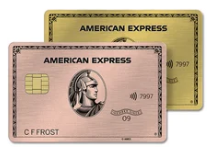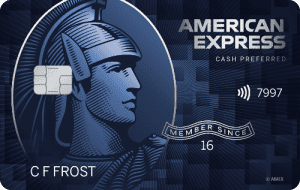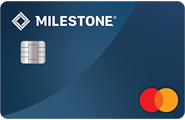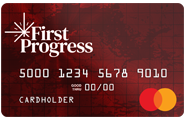Table of Content
Key Takeaways
- US customers can freeze their credit for free. This essentially blocks any lenders from approving any new credit in your name.
- One thing to keep in mind is that you have to unfreeze credit if you want to buy insurance, apply for a new job or rent an apartment.
- People can initiate a credit freeze by contacting 3 major credit bureaus, online, by telephone, or by email.
- A credit freeze can be a handy tool in case you suspect that you are a victim of identity theft or if your bank informs you about a fraud accident.
Credit freezing, also known as a credit freeze, is a way to protect your credit from identity theft and fraud.
By freezing your credit, you prevent new accounts from being opened in your name, which can be a critical step in preventing unauthorized access to your personal and financial information. With so many data breaches and incidents of identity theft in recent years, credit freezing has become a popular way for consumers to safeguard their financial well-being.
If you're concerned about your credit being used without your permission, this guide will provide you with an overview of what credit freezing is, how it works, and the steps you can take to freeze your credit.
What Is A Credit Freeze?
You can call a credit freeze a ‘security freeze’ because it gives you the opportunity to “lock” your credit data in the major credit bureaus. You can do this if you want to prevent identity thieves from using your name on anything that may require your credit information or report.
You will get a password or a PIN (personal identification number) that you can use to lift or remove the freeze as you want temporarily.
- You must initiate a security credit freeze at each of the three credit reporting agencies, namely: Experian, TransUnion, and Equifax.
- You must use your PIN code every time you want to freeze or unfreeze your credit.
- If you want to unfreeze your credit report, you should stick to the same process that you used to freeze it. If you froze your report through each of the credit reporting agencies, you will need your PIN to unfreeze it. Take note that there may be a fee to do it depending on which state you live.
A security freeze isn’t a cure-all pill because your existing creditors and lenders can still access your report and credit score even without your PIN.
Government agencies, including some law enforcement agencies, can access your details even after you have frozen your report.

Does Freezing Credit Card Affect Score?
Credit card freezing, also known as a credit freeze, will not directly affect your credit score. When you freeze your credit, it simply blocks access to your credit report and prevents new accounts from being opened in your name. Your existing credit accounts, payment history, and other credit-related information will still be reported and can be used to calculate your credit score.
However, because freezing your credit makes it more difficult for you to apply for new credit, it could potentially delay or impact your ability to apply for loans, credit cards, or other financial products. Therefore, it's important to consider the potential impact on your credit before deciding to freeze your credit.
Even if you execute a credit freeze, it will not affect your credit score or prevent you from getting your annual credit report. However, you’ll have to lift the freeze if you’re applying for a job, renting an apartment, opening a new account, or buying insurance.
More importantly, identity thieves can still use your existing accounts for their illegal activities, so you still have to keep an eye on your credit card, bank, and insurance statements for indications of fraud.
Top Offers From Our Partners
Top Offers From Our Partners
Top Offers From Our Partners
How Do You Freeze Your Credit at Each Bureau?
It’s quite simple to freeze your credit. Just contact each of the three major consumer credit bureaus and request a credit freeze for your credit. Do remember that freezing your credit is different from locking your credit.
If you need to freeze all three of your credit reports, you'll need to contact each of the three major credit reporting agencies: Equifax, Experian, and TransUnion.
When you make a request, they will ask for your name, address, date of birth, and Social Security Number. They will then verify your identity by asking you a few questions. When everything is in order, they will give you a PIN that you can use to unfreeze and refreeze your credit report as you need to.
-
Experian
- Online: Go to www.experian.com and click the Security Freeze button.
- By phone: Call 1-888-EXPERIAN (1-888-3973742). Press “2” and follow the prompts for a security freeze.
- By mail: Send a certified mail to request a credit freeze (see sample letter). Take note of the documents you must include in the letter.
- Use this address: Experian Security Freeze, P.O. Box 9554, Allen, TX 75013
-
TransUnion
- Online: Go to www.transunion.com/credit-freeze and click the Freeze My Credit button.
- By phone: Call 1-888-909-8872
- By mail: Send a certified mail to request a credit freeze (see sample letter). Take note of the documents you must include in the letter.
- Use this address: TransUnion LLC, P.O. Box 2000, Chester, PA 19016
-
Equifax
- Online: Go to www.equifax.com and click the ‘Place a security freeze’ button.
- By phone: Call 1-800-685-1111 to request for a freeze. NY residents can call 1-800-349-9960.
- By mail: Send a certified mail to request a credit freeze (see sample letter). Take note of the documents you must include in the letter.
- Use this address: Equifax Security Freeze, P.O. Box 105788, Atlanta, GA 30348.

When Should I Freeze My Credit?
As a safety measure, you should think of freezing your credit if a thief was able to steal your identity. Even if it’s just a suspicion and you’re not certain that you were a victim, it is a good step to request a freeze on your credit file.
You accomplish two things when you do it: first, you can prevent this type of theft and the ensuing financial consequences. Second, you spare yourself from the stress that the crime can cause you.
You may also want to freeze your credit file if:
- You’re getting bills or collection notices under your name or for another person who you do not know at your address
- Somebody has stolen your credit card details in the past or you are a past victim of identity theft.
- There are new inquiries on your credit report from entities that you did not provide permission to.
- Your bank informs you about a fraud incident or attempt on your account.
- You receive a legitimate company announcement where you are or could be a victim of a data breach.
- You are not planning to apply for new credit anytime soon.
Credit Freeze: Pros and Cons
Yes, freezing your credit gives you extreme protection from identity thieves but there are still pros and cons for you to consider. So, before you freeze your credit, look into these advantages and disadvantages:
-
Advantages
Here are the advantages of a credit freeze:
- It puts up an extra level of protection to the open accounts under your name. Without your PIN number and additional security information, no one will be able to open an account in your name.
- It has no negative impact on your credit score whatsoever.
- You can still use your existing accounts or open new ones to take out loans, etc. However, some of these transactions will require you to unfreeze your account temporarily.
- Your existing creditors can still access your credit report. So, if you want to ask for a credit card limit increase, you won’t need to worry about unfreezing your credit.
- It is now free of charge – you don’t have to spend if you want a credit freeze.
- You can still use your existing credit card accounts as usual.
-
Disadvantages
Here are the disadvantages of freezing your credit:
- You have to lift the freeze to your credit when you want to apply for a credit card, mortgage or other financial product that require a credit check. The extra step is to go back to each credit bureau where you’ve frozen your credit to unfreeze it from each one of them.
- It may affect your application for jobs, cellphone service or any other instances where the other party has to do a credit check because of the timing delay in unfreezing and thawing your credit.
- It’s practically useless in case a criminal has already accessed your accounts.
- It’s fundamentally inconvenient if you have an active financial life because of the freezing and unfreezing you have to do from time to time. Each time you want to allow someone to access your credit report, you need to lift your credit freeze.
Credit Freeze vs Credit Lock
There’s a very big similarity between a credit freeze and a credit lock – both keep your creditors from accessing your credit file. In the same way, to lock your credit, you need to lock your file with all three credit bureaus: Experian, TransUnion, and Equifax. The two differ in how you can lock or unlock your credit file and how much it costs to do so.
The cool thing is, you can unlock your credit line through an app or online. With a credit lock, activating and deactivating it online or through a smartphone mobile app is quick and simple. All it takes is a username and password. With a credit freeze, the steps are more laborious. You’ll need to go online, mail your request, or call the credit bureau then use your PIN to install, lift, or remove a freeze.
There is a monthly fee to lock your credit file with Experian. This is a characteristic of a credit lock: you sometimes have to pay a monthly fee. Experian’s website advertises a charge of $4.99 for your first month (and $24.99 for each additional month). You might have to spend quite a sum if you intend to lock your account for a long time. TransUnion and Equifax do not charge for credit locks.
Does A Credit Freeze Stop Collections?
A credit freeze, also known as a security freeze, can prevent new accounts from being opened in your name, but it does not stop ongoing collections on existing accounts.
Collection agencies may still be able to access your credit report and attempt to collect on a debt even if you have a credit freeze in place.
To stop collections, you may need to take other actions such as negotiating with the collections agency or seeking the assistance of a debt settlement or consumer credit counseling service.




